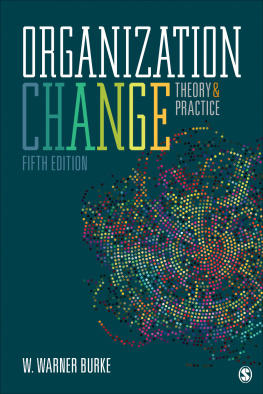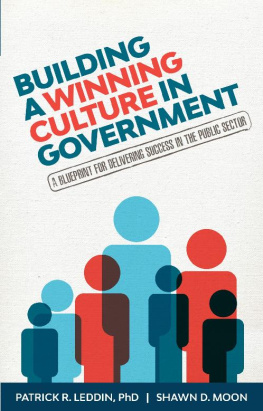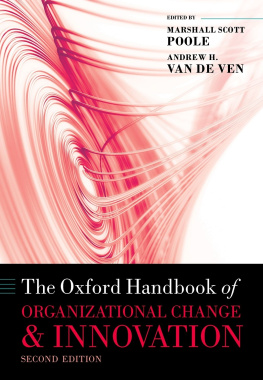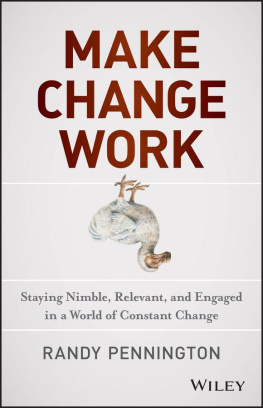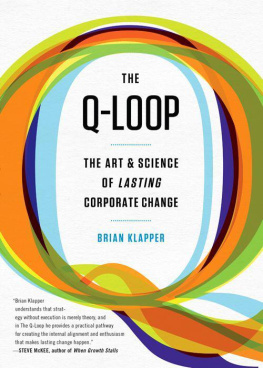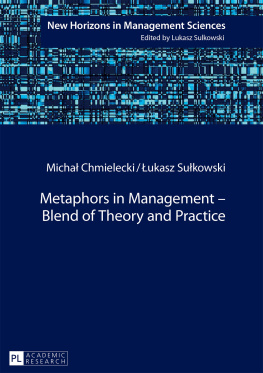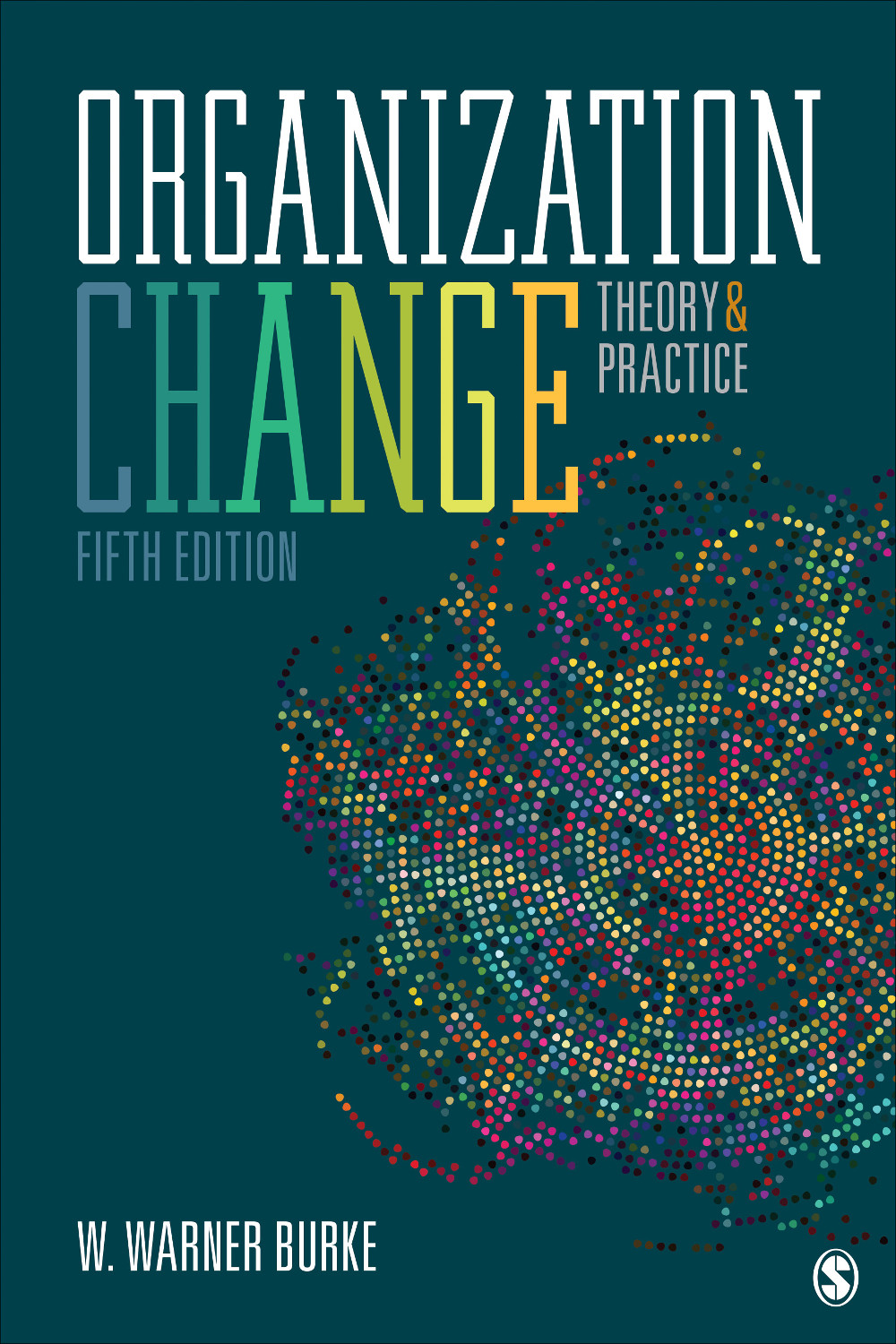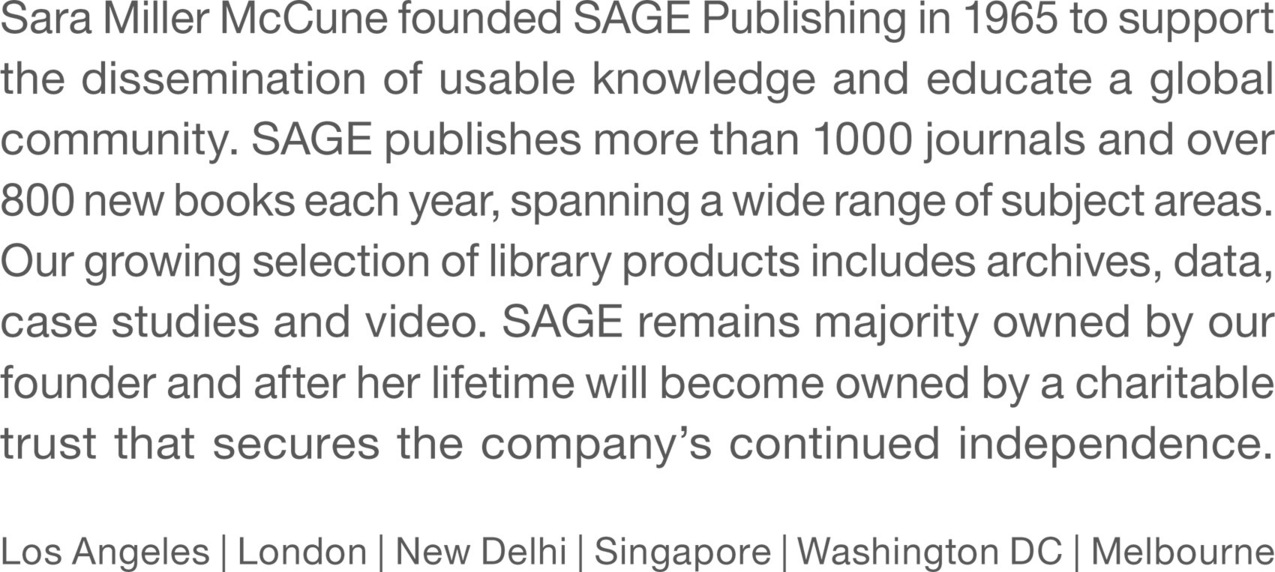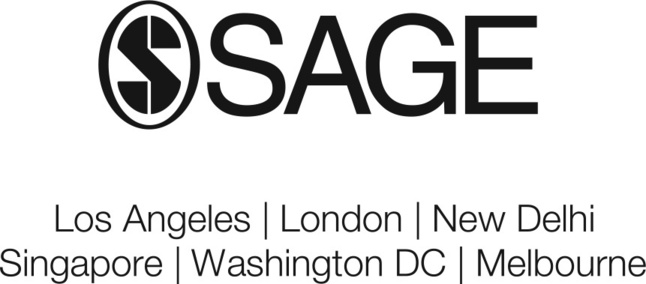Organization Change
Fifth Edition
To Bobbi
And to the next generation...
Brian & Emily, Courtney & Darrin, and Donovan & Melissa
And to the next generation after that...
William, Thomas, Julien, Adrian, Madeleine, and Maya
FOR INFORMATION:
SAGE Publications, Inc.
2455 Teller Road
Thousand Oaks, California 91320
E-mail: order@sagepub.com
SAGE Publications Ltd.
1 Olivers Yard
55 City Road
London EC1Y 1SP
United Kingdom
SAGE Publications India Pvt. Ltd.
B 1/I 1 Mohan Cooperative Industrial Area
Mathura Road, New Delhi 110 044
India
SAGE Publications Asia-Pacific Pte. Ltd.
3 Church Street
#10-04 Samsung Hub
Singapore 049483
Copyright 2018 by SAGE Publications, Inc.
All rights reserved. No part of this book may be reproduced or utilized in any form or by any means, electronic or mechanical, including photocopying, recording, or by any information storage and retrieval system, without permission in writing from the publisher.
Printed in the United States of America
ISBN: 978-1-5063-5799-7
This book is printed on acid-free paper.
Typesetter: C&M Digitals (P) Ltd.
Preface
The bulk of what was written for the first four editions of this book remains the same in this fifth edition. Fundamentals of organization change are still fundamental. Yet we continue to learn, and now we need to consider more than we have in the past differences beyond the fundamentals. The success rate of organization change remains poorlittle more than 30%thus we must step up our pace for learning. The new chapter (13) for this fifth edition is an attempt to do so by considering in more depth two other organizations and looking more carefully at differences. These other organizations are in the health care arena and government, organizations that affect our daily lives. These organizations are not the same as corporations, where most of learning about organization change comes from.
The overall purpose of this book remains the same, neverthelessthat is, to report on and interpret current knowledge of organization change. The knowledge comes from a variety of sources, as noted next. The interpretation comes from my understanding as an academic of what the literature seems to be telling us and from my experience of well over 45 years as an organization change consultant. Will Rogers is reported to have said, All I know is what I read in the newspapers. All I know is what I have read in the organization literature and what I believe I have learned as a consultant to organizations. Both are limited. You, the reader, should therefore be forewarned. While I have made a concerted effort to present material from the literature as objectively as I could, in the end what I have written is biased, at least in two ways: (a) my selections from the literature are just that, selective, and are not as comprehensive as we might prefer, and (b) my interpretations come from experience. It should be noted, however, that in the meantime I have coedited a book of readings that contains much of the literature that undergirds this text. With this book (Burke, Lake, & Paine, 2009) . Maybe I am coming full circle. My doctoral dissertation many years ago was on leadership. Allow me to describe briefly a few examples.
First, I continue to codirect our MA program in organizational psychology here at Teachers College, Columbia University, for a cohort of 24 U.S. Army officers at the U.S. Military Academy at West Point. On completion of this graduate degree in one year, most of these officers (captains and a sprinkling of majors) will be assigned to cadet companies (about 130 students) as the regular armys officer-in-charge. They evaluate twice a year the cadets military performance and also serve as mentors, coaches, and leaders for these cadets. They have considerable influence on future officers of the U.S. Army. Our faculty, therefore, have indirect influence through our classroom teaching. This experience has been significant and rewarding. No doubt I have been influenced as well.
Second, I have been involved for a few years now with a Midwestern state university as a visiting professor, but also as a consultant to the provost and dean of one of the university schools. In this work, we have focused on the role of the leaders (provost and dean) in initiating and managing change. As it is a state-supported university, regulations and budgets are somewhat imposed, which in turn creates a tightness in how the institution operates. Yes, it is a university, after all, which means that it is more a loosely coupled system than a tight one. We therefore emphasize mission, change direction, shared values, and cooperative actions across units to ensure that even though looseness is recognized and informally rewarded, a system consisting of interdependent parts is the focus. In working with this organization, I was reminded of ideas from the 1930s expounded by Mary Parker Follett (as cited in Follett, 1996), an individual way ahead of her time. Her notion of the invisible leader is an excellent case in point. She stated that to maximize organizational effectiveness, both the leader and the followers need to follow the invisible leaderthe purpose of the organization. That way, leadership is organizationally focused and not so dependent on the persona of the leader. I am using this idea in discussing the leadership of this university.
Third, I have been involved in leadership transitions, trying to help organizations deal as effectively as possible with the change from an old to a new president and chief executive officer. This kind of transition provides a wonderful opportunity for organization change. We need to know more about matters of leadership transitions. Incidentally, quite a number of years ago, Michael Mitchell wrote a brief and useful article for the Harvard Business Review on how to facilitate a transition in leaders.
In sum, recent experiences with leader coaching and consulting have no doubt influenced choices and perspectives in this fifth edition. And as before, my attempt has been to combine and to some degree integrate theory and research with application. After setting the stage in are more about theory and researchfoundations of organization changeand the remaining chapters deal more with application and practice.

